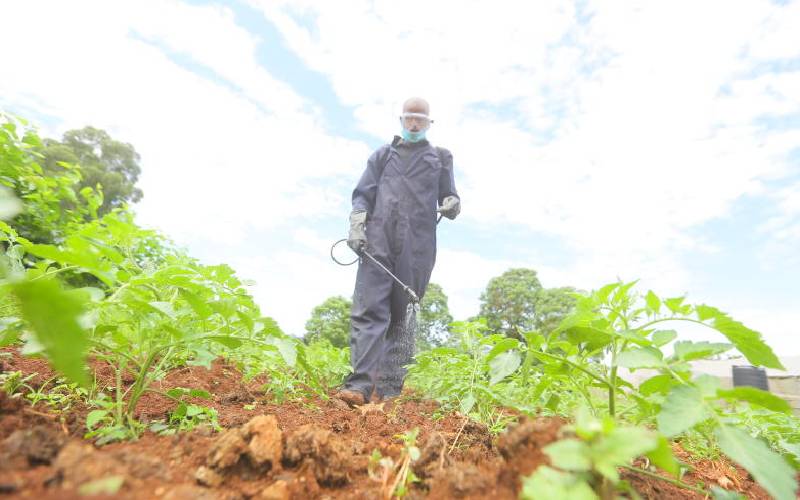×
The Standard e-Paper
Stay Informed, Even Offline

Justus Monari a Farm Manager at Kisii Agricultural Training Center sprays vegetables against pests on their farm. [Sammy Omingo, Standard]
Farmers in Kenya are not using pesticides and other crop chemicals as instructed by manufacturers and State agencies, it has emerged.